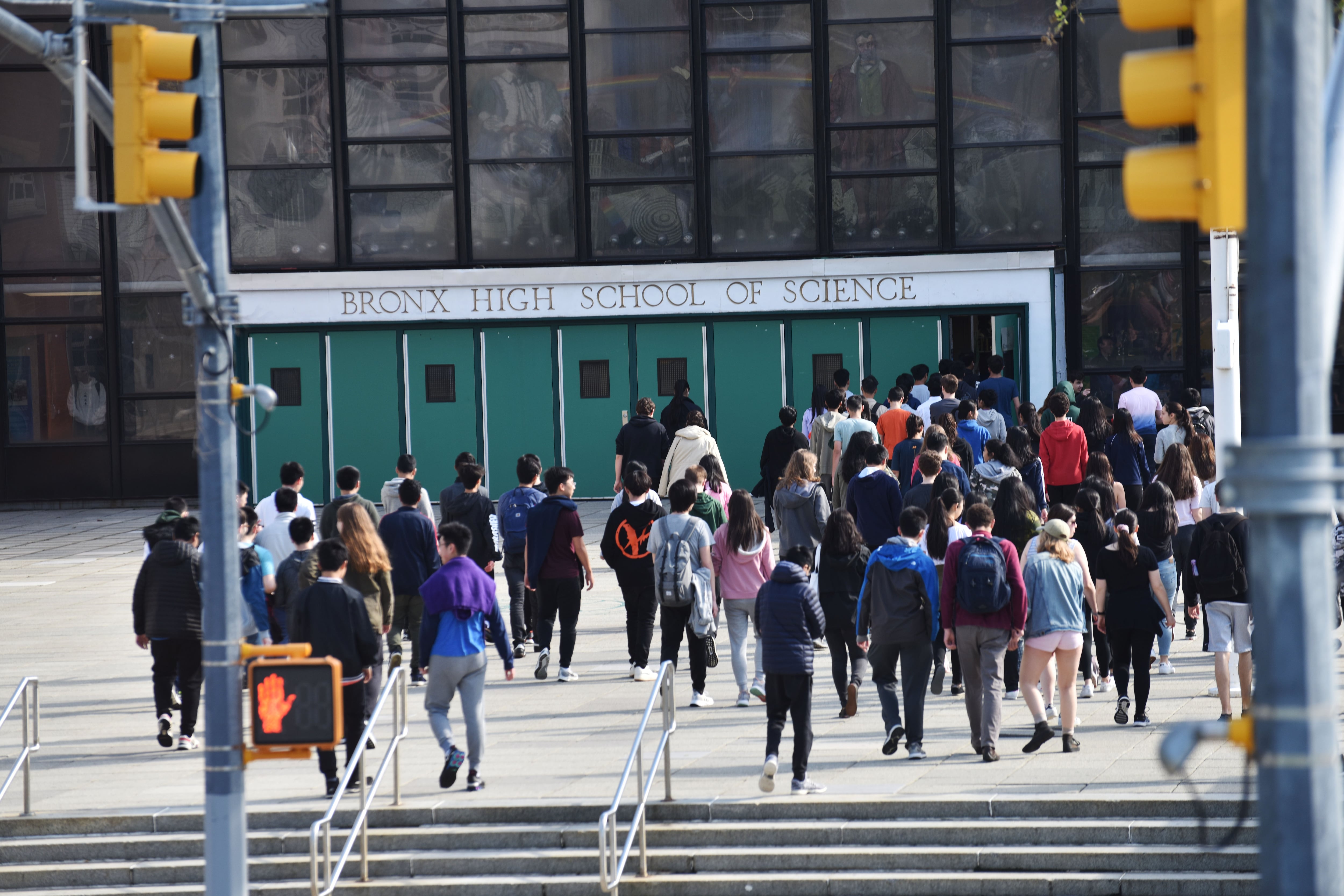Chalkbeat is a nonprofit news organization covering public education in communities across America. Sign up for our free New York newsletter to keep up with NYC’s public schools.
In the wake of a deadly school shooting in Nashville, New York City officials sought to reassure families Friday that they are beefing up school security.
City officials said the work to outfit schools with video-equipped doorbells will start at elementary schools in May. Schools Chancellor David Banks said the rollout would take place “over a number of months” with the goal of reaching all school buildings by next spring.
Currently, school visitors must sign in with school safety agents. But under the new plan, they would first need to be buzzed into the building instead of walking in through an unlocked door.
“Something that keeps me up at night is when I look around the country and I see the issues that are happening with these mass shootings,” Banks said during a school safety briefing. He added: “We’re going to do everything we can to prevent something like that from happening.”
The $78 million plan to lock school doors was first revealed in the mayor’s preliminary budget in January, but officials did not say at the time when they anticipated completing the project.
The school safety briefing on Friday included top City Hall and police department officials and comes as violence near school campuses has rattled some communities in New York City and across the country. Though extremely rare, mass school shootings like those in Uvalde, Texas, and more recently in Nashville, often create pressure on school districts to “harden” their campuses with new security measures.
City officials also pointed to several previously announced measures to bolster campus safety, including bringing violence interrupters and mentors to nearly 140 schools and instituting more regular meetings between school principals and police precinct commanders.
But the plan to lock school building doors is one of the most significant changes to school security in recent years, drawing mixed reactions from experts and school communities.
School entrances are already monitored by school safety agents, and experts said it’s unclear how much additional safety value there is in locking them. The doors also won’t be locked during arrival or dismissal, creating stretches of time when the locks won’t be in use. Some parents have pushed for the door-locking policy, though others worry it will make families feel less welcome on campus.
“Obviously, you read about school shootings and it’s scary for all of us, so everyone wants to do something,” a Brooklyn principal previously told Chalkbeat. “But mostly what we need to do is keep doing our jobs and not create a new obstacle.”
Others have pointed out that most serious instances of violence affecting young people have occurred outside school buildings, raising questions about whether the door-locking project is the best use of resources.
City officials on Friday indicated that they’re also planning to bolster the ranks of school safety agents. The unarmed police department employees are stationed in schools and will be tasked with operating the buzzer systems.
The number of school safety agents fell about 20% during the pandemic to just under 4,000, which police Commissioner Keechant Sewell suggested was largely the result of a previous hiring freeze for the role.
“We intend to hire up to the point where we were before if we can,” Sewell said.
But that appears to be at odds with Mayor Eric Adams’ preliminary budget, which calls for eliminating hundreds of vacant school safety positions, according to a recent report from the city’s Independent Budget Office. Spokespeople for City Hall and the education and police departments did not immediately respond to a question about the discrepancy. A more detailed budget proposal from the mayor is expected later this month.
Alex Zimmerman is a reporter for Chalkbeat New York, covering NYC public schools. Contact Alex at azimmerman@chalkbeat.org.







